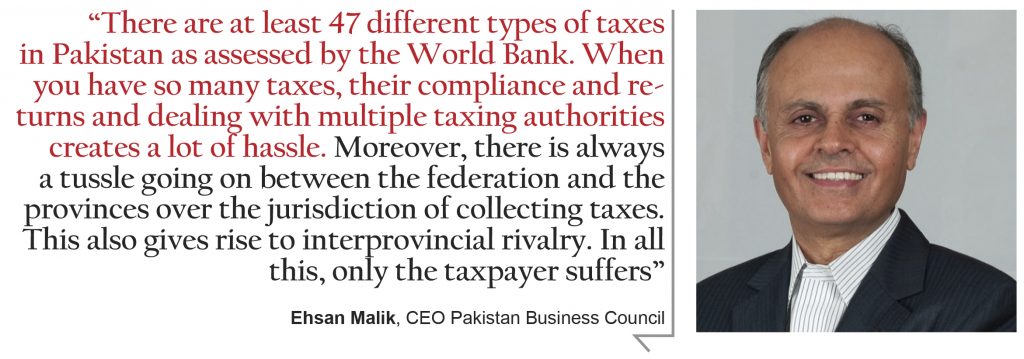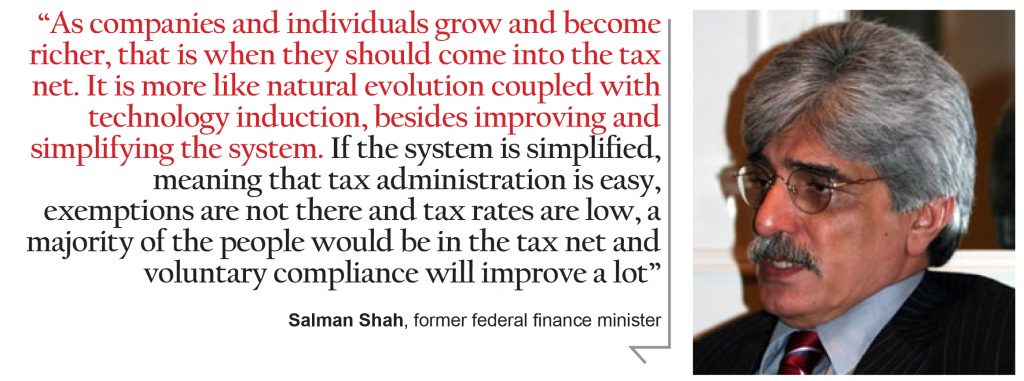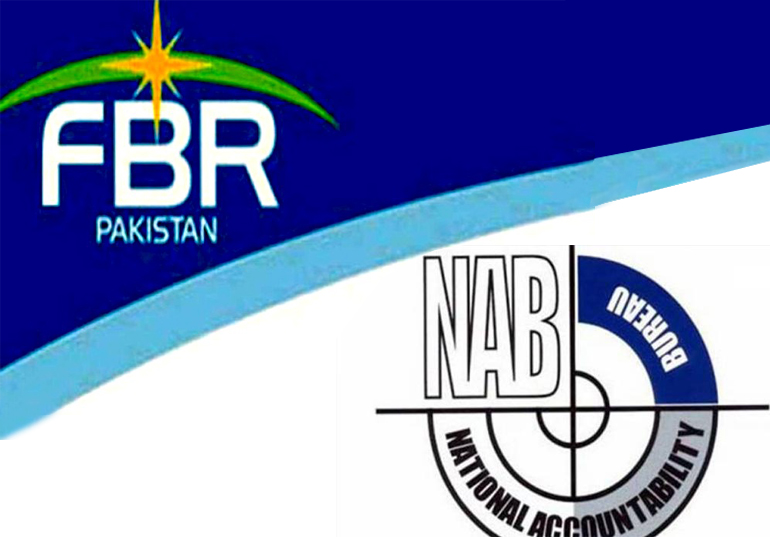On March 15, former intelligence officer and defence analyst Asad Munir, a retired brigadier in the Pakistan Army, committed suicide by hanging himself from a ceiling fan. Munir’s suicide unveiled a gutting reality about a system infested with incompetent [government] officials who play with the life and honor of citizens in the name of accountability. In his suicide note, Munir revealed that he was committing suicide “to avoid humiliation, being handcuffed and paraded in front of the media,” and made an impassioned appeal to the Chief Justice of Pakistan to take notice of the conduct of the officials at the National Accountability Bureau (NAB).
While Munir’s is not the first instance to display the consequences of NAB’s virtually unbridled powers to ruin people’s lives and dignity, what is more worrying is that NAB and other law enforcement agencies intimidate businessmen, who are the life and blood of the economy, and their image as respectable members of the society is shredded on mere ‘allegations’ of corruption.
The sentiment among the businessmen community as conveyed to Profit is that in an atmosphere of intimidation like this, no entrepreneur or businessman is likely to invest in Pakistan, and the existing ones will also eventually lose their morale.
Names of prominent businessmen make newspaper headlines frequently as NAB officials leak to the press the names of people they are investigating. One of the latest victims was Mian Muhammad Mansha, one of the richest man in Pakistan and the largest shareholder of MCB Bank among other businesses, who was summoned by NAB over ‘allegations’ of money laundering, which he denies.
The businessman appeared before NAB to record his statement, but, unsurprisingly, refused to appear again for fear of being detained as NAB has been detaining people for the purpose of investigation. It was not until the Lahore High Court (LHC) ordered NAB to refrain from coercing Mian Mansha that he agreed to appear.
While the case against Mian Mansha is likely to linger on for a while, and he might as well be exonerated, but the ordeal still may cause harm to his reputation. However, more importantly such instances may cause irreversible damage to Pakistan’s image as an investment friendly country. (Disclosure: Mian Masha was one of the early financiers in the parent company of Profit.)
The ability to detain arbitrarily, without charges indefinitely during an investigation, without any evidence or recourse to judicial remand, coupled with the fact that NAB inquiries require the accused to prove their innocence, rather than assuming innocence and requiring prosecutors to prove guilt, goes against the very foundation of the rule of law, the bedrock of a civilised society and a thriving economy.
The rule of law requires accountability of those who are in power – both political and economic. But when those charged with enforcing the rule of law adopt such tactics, it does not serve the purpose of cleaning up corruption, and only serves to disincentivise investment and entrepreneurial activity. More importantly, it does nothing to fundamentally reform the sclerotic system that brought about the alleged corruption in the first place.
More complicated than simply tax evasion
More often than not, businessmen in Pakistan are perceived to be vile and corrupt. The general assumption is that if someone makes money in this country, there must have been some foul play involved.
It is true that businesses sometimes do employ illicit means to achieve their ends, but at least in some cases, they do it out of necessity rather than choice because in a business environment where government agencies such as NAB or the Federal Board of Revenue (FBR) adopt a rigidly bureaucratic and hostile attitude towards commercial enterprises, it is not always possible to play by the rules because the rules themselves appear to be designed to strangle a business rather than nurture it.

For instance, while tax evasion is a legitimate problem in Pakistan, it is at least partially caused by the propensity of the FBR to harass businesses and individuals who pay their taxes rather than those who do not. Far from rewarding tax-payers, the government appears to actively punish them, encouraging businesses to go against the rules to if they want to do business.
A Lahore-based businessman explains that if you conform to the system, meaning that you pay taxes diligently, revenue authorities will raid your facility and harass you more than they will do non-taxpayers. “They are asking for more tax money from the same businesses that have been paying taxes actively,” he said while talking to Profit.
Ehsan Malik, former managing director of Unilever Pakistan and current CEO of the Pakistan Business Council (PBC), a business lobbying group, told Profit that the revenue authorities such as the FBR also ask for advance taxes to meet their targets. “When there are targets, authorities start harassing existing taxpayers by sending them notices. Some taxpayers get scared of the investigations and pay taxes in advance, meaning to pay taxes of the upcoming quarter in the present quarter [so that the targets of the authorities can be met]. That’s the sort of harassment that is meted out.”
Going after the same people is an easy fix for tax collectors, explains Malik, as the authorities have to meet their targets and show performance. The FBR is assisted in doing so by the structural flaws in the system because policy making and tax collection lie with a single entity, making a tax official a prosecutor as well as a judge. If for instance tax revenues are shy of the required targets, since the power of policy making also lies with the tax collectors, they will just levy another tax on existing taxpayers to meet those target, he says.
Sending notices hasn’t been the only tool to pressurise businessmen. Newspapers are abuzz with instances of raids and arrests of businessmen and it has only picked up pace after the Imran Khan Administration took office. Names of influential figures in the business community have been put on the Exit Control List (ECL) by the government, allegedly for failure to comply with tax laws, though the punitive measures appear to have been undertaken without convictions of crimes in courts, or even indictments.

That is besides the unchecked powers of NAB to go after businessmen on mere allegations. The phenomenon has become so prevalent that courts have intervened on more than one occasion ordering the state authorities to stop harassing business owners.
A businessman explained that this has created an atmosphere of fear in the business community which has really slowed things down because it is holding them from making new investments because of the fear that the officials will come after them if they get to know they have money. Jobs are created by businessmen who are willing to take risks with their money in the form of investments. Higher employment eventually leads to higher consumption which drives economic growth. If businessmen are scared, they will not invest and that is eventually going to lead to further slowdown in the economy, he says.
Moreover, for those who pay taxes voluntarily, Ehsan Malik claims that the system is overly complex and it has been kept as such deliberately so that when someone makes a mistake, he can be left at the mercy of officials.
Dr Kaiser Bengali, an economist who has previously advised the provincial governments of Sindh and Balochistan, claims that FBR officials use their powers to extort bribes. “If the government really wants to increase revenues, there are electronic means of doing so. There are so many ways through which you can identify a person’s eligibility to pay taxes. But the government does not want to do that. They want to have a personalised approach to concoct avenues for corruption and that is deliberate,” he says.
“There are at least 47 different types of taxes in Pakistan as assessed by the World Bank. When you have so many taxes, their compliance and returns and dealing with multiple taxing authorities creates a lot of hassle. Moreover, there is always a tussle going on between the federation and the provinces over the jurisdiction of collecting taxes. This also gives rise to interprovincial rivalry. In all this, only the taxpayer suffers,” Ehsan Malik says.

Whether a consequence of the flaws in the system or simply incompetence of successive governments to keep things on track from the very beginning, or both, there is a large undocumented sector that operates in the overall economy, which eases the burdens associated with operating in the formal economy, away from the eyes of the officials.
Economists call this ‘informal economy’ or the ‘informal sector’ that is made up of small and medium scale enterprises and individuals which are not documented and therefore are not liable to pay taxes or conform to regulations imposed by the government, unlike the formal sector. In Pakistan, the informal sector is estimated to be around 60-70% of the overall economy.
The undocumented/informal sector
The informal sector is not limited to undocumented businesses only. Even formal businesses maintain parallel books and accounts to save themselves from paying taxes and additional costs associated with maintaining standards. They are able to do it because the shadow economy, another connotation for the undocumented sector, enables the formal businesses to do so because due to its large size, informal sector forms an integral part of the overall operations of the formal businesses.
For instance, a large documented retail business might use a small distributor’s service in his supply chain, who is most likely to be undocumented. Since the transactions between the two would not be recorded at both ends, it will be easy to hide such transactions completely in the official books. Formal businesses are also at times compelled to maintain parallel books because those who are undocumented are not liable to pay taxes and therefore do not allow formal businesses to deduct taxes during a transaction with them.
For the state, a large informal economy means a significant loss in tax revenues besides lack of power to effectively regulate undocumented businesses. But experts estimate the cost for citizens to be even higher as informal firms, because they are not regulated, can underpay workers, employ children, make them work long hours, may not maintain health and safety standards and may produce goods of substandard quality. Unregulated enterprises can contribute significantly towards deteriorating overall wellbeing of a society.
Despite all the ills, businesses still want to stay associated with the undocumented or unregulated economy for three main reasons: firstly, taxes lack legitimacy in Pakistan: there are virtually no incentives from the government for being a taxpaying business; secondly, no one comes after you; and third, it yields more profits, at least in the short run, which is the ultimate purpose of doing a business.

The present situation is that those operating in the formal sector have become informal after staying in the formal sector for a long time due to the disincentives associated with it.
“For instance, in the manufacturing sector, there is a textile mill that has done that. They registered different units as different companies. If a mill has 1,000 workers, all the labour laws apply on it. If you break it down into smaller units, labour laws don’t apply. So there is a trend towards informalisation. Formal companies have become informal because it saves them from payments of maintaining standards imposed by regulatory bodies,” Dr Kaiser Bengali says.
What should the government do?
To understand what the government should do, it is important to look at what the government is trying to do at the moment and what is wrong with it.
The government is trying to formalise a sector that employs 60-70% of the labour force, using the same old coercive and rent-seeking authorities, by the use of stick instead of encouraging voluntary compliance by providing incentives. It is inarguably true that taxes remain the single best source of increasing government’s revenue and increasing the number of taxpayers is the best way to achieve that.
But should it be done in haste, like the government is trying to do in a complex economy already in a slowdown, where authorities act with impunity and where there is a punitive tax regime that discourages wealth creation?
Nadeemul Haque, an economist and former deputy chairman of the Planning Commission, believes that the informal sector is very large and the present strategy to formalise it will hamper economic growth as the government is shutting down businesses in the name of documenting them.
According to him, the majority of the people will stay informal because people are not that rich and there is not much that can be taken out of them anyway. The informal sector will eventually come into the formal stream if businesses are allowed to grow and that requires policies that enable smooth working of the economy.
“Simply put, if a person puts a small shop and it grows on to become a large departmental store, it will automatically become formal because large businesses cannot go unnoticed. You have to let them grow. If you allow growth, they will not be able to hide,” he said.
“It is going to evolve naturally. Informal will automatically become formal. Meanwhile, fix the system,” he says. “Also stop this differentiation between filers and non-filers. Most of the people in our country are non-filers and it is going to be like that because most of the people here are not that rich. You have to let it evolve naturally. The purpose of economic policy is to enable smooth working of the economy. Everyone cannot be included in the formal economy. For example these Uber and Careem drivers, they cannot be formalised. They will stay informal. Let them work that way,” says Dr Haque.
Former finance minister Dr Salman Shah says that informal sector employs a lot of people and any hard action is going to bring an economic standstill and increase poverty. “As companies and individuals grow and become richer, that is when they should come into the tax net. It is more like natural evolution coupled with technology induction, besides improving and simplifying the system. If the system is simplified, meaning that tax administration is easy, exemptions are not there and tax rates are low, a majority of the people would be in the tax net and voluntary compliance will improve a lot,” he says.
Profit made multiple attempts to contact State Minister for Revenue Hammad Azhar for a comment but he did not respond. Attempts were also made to contact federal Finance Minister Asad Umar and Punjab’s Finance Minister Hashim Jawan Bakht over government’s strategy to document the informal economy in the present circumstances but no response was received.





hmm fbr should do something for result
Comments are closed.